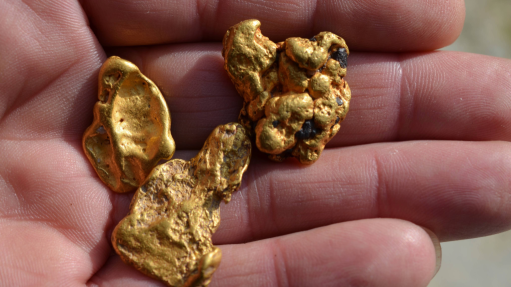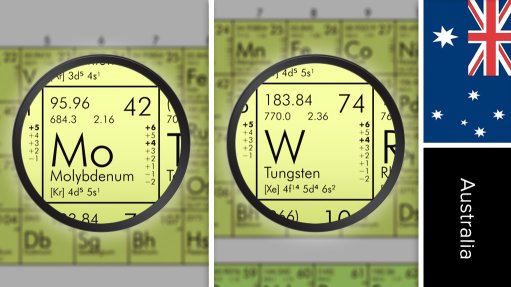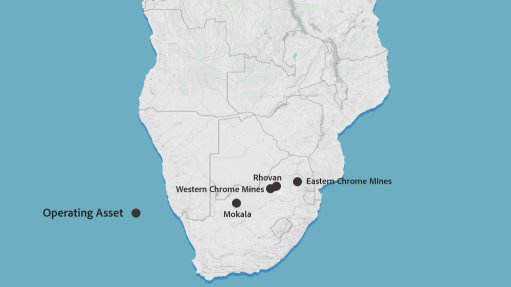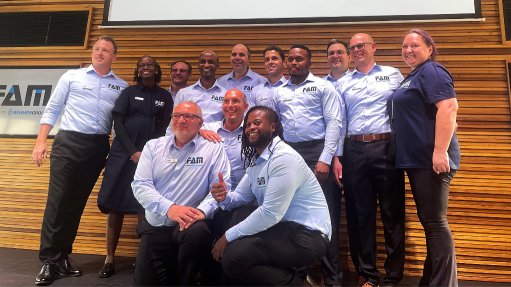Local procurement designation drives industry boom

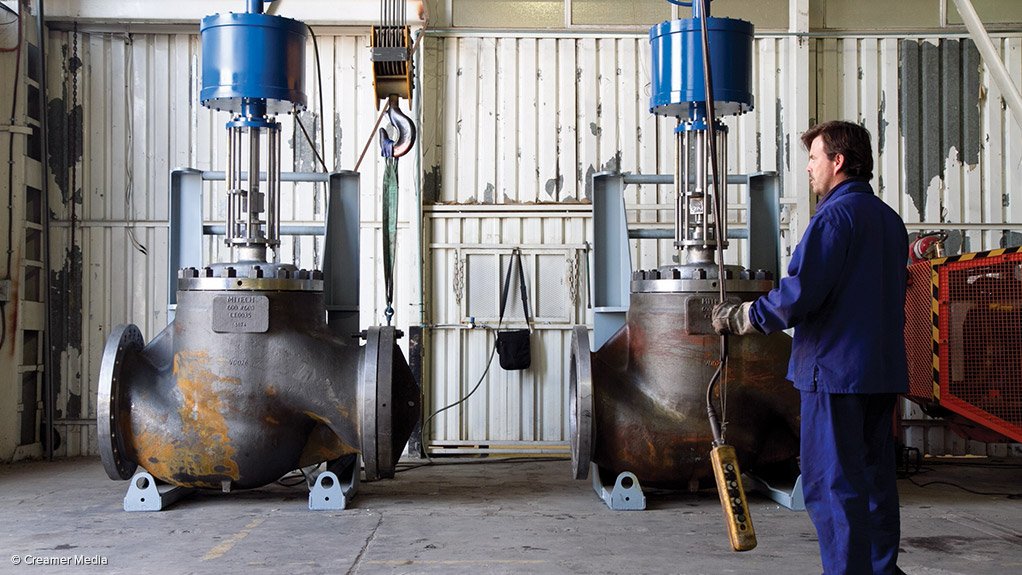
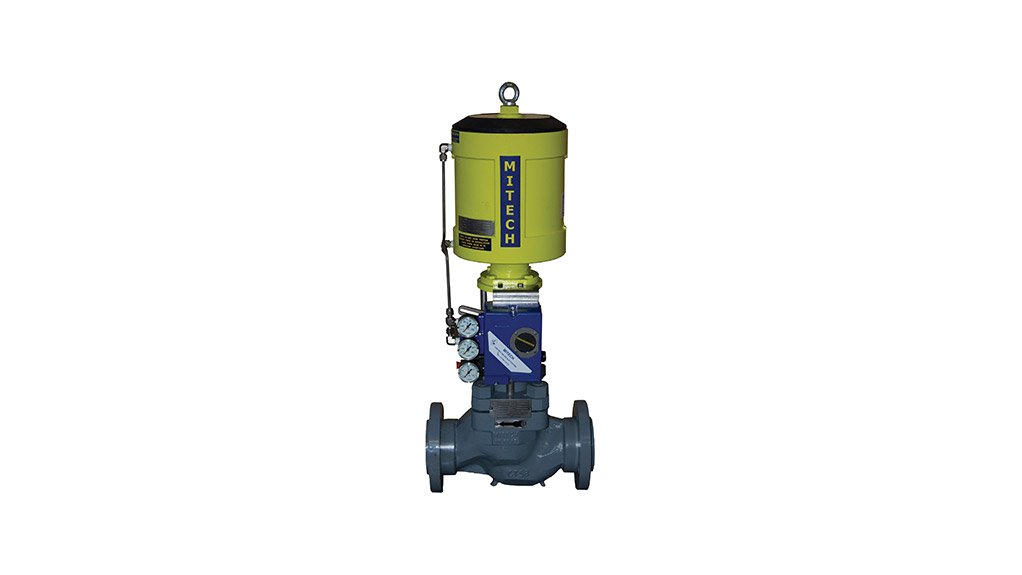
FACTORY EXPANSION Owing to industry demand, Mitech moved to a larger premises in Kempton Park
Photo by Duane Daws
GLOBE CONTROL VALVE Mitech’s most popular valves for the mining industry is the company’s high-pressure globe-control valves
The Department of Trade and Industry’s (DTI’s) decision to designate valves for local procurement by State-owned companies (SOCs) was the main reason for valve manufacturer Mitech’s moving to a larger factory within Denel Industrial Park, in Kempton Park, says Mitech MD Greg Walker.
Mitech started moving the contents of its 2 800 m2 factory in December 2014, with the first machines having entered operations in January.
Walker is encouraging Mineral Resources Minister Advocate Ngoako Ramatlhodi to pursue the same type of designation in the mining industry through his department’s policy instruments.
The new factory of more than 4 000 m2 offers Mitech “world-class” facilities, with increased security, he adds.
Walker says government was tasked with increasing jobs in the private sector in 2011.
“To create jobs in the private sector, government, through the DTI, changed the procurement document, titled the Preferential Procurement Policy Framework Act, which SOCs use to buy from predetermined manufacturers,” he says.
This enabled the Trade and Industry Minister to designate products, including valves, for procurement from local manufacturers.
Walker explains that, prior to the enforcement of the procurement designation, a comprehensive valves-industry study was conducted, which included the determination of industry manufacturing capabilities and expertise.
“The . . . study found that valves and actuators could and should indeed be designated for local procurement by SOCs,” he notes, adding that valves were designated for local procurement at the end of February 2013. However, the instruction note from the National Treasury to the SOCs was effective only from March 3, 2014.
“It is now law that SOCs have to buy valves from local manufacturers,” he says, adding that if SOCs do not want to buy valves from local manufacturers, they are required to apply to the DTI for an exception whenever such a situation arises.
The local procurement designation includes a broad spectrum of valves, from simple household taps to complex valves used in specialised industrial and mining applications, with the local content of each valve or actuator required to be 70% by value.
This provides an opportunity for local valve manufacturers to develop and add to their range of products the valves that might not have been available with a local manufacturer’s stamp prior to the designation, says Walker.
A lot of resistance was encountered from SOCs to buy locally made valves, he says, adding that this was largely owing to SOCs’ perception of locally manufactured products being of “inferior quality”.
“This is a real crying shame because a lot of the local valves companies have been exporting their products to overseas markets for many years, with no issues.
“If locally made valves are good enough to export, then why are they not good enough for local clients?” questions Walker.
Addressing the Challenge
Walker states that the local procurement issue resulted in the formation of working groups for specific industries, such as mining, munici- palities, waterworks, pipelines, power generation, oil and gas. Various members of industry representing specific valves sectors are part of these groups.
The working groups were tasked with identifying three categories of valves – those already available on the local market, those that should be manufactured locally and those for which local manufacturing will not be feasible.
Walker says, for example, the local manu- facturing of the duckbill valve will not be feasible. These one-way valves prevent effluent or liquid from returning to source once flow has ceased. Although these non-return valves are not complicated to manufacture, demand for them is almost nonexistent in South Africa.
Further, the working groups also serve as a platform to encourage familiarisation with the various SOCs and their requirements and, in turn, for the SOCs to gain confidence in local valve manufacturers.
He states that the other objective of local procurement designation is to create sustain- able jobs, which subsequently require production to increase and price to decrease, as well as quality to improve, a good export market and associated export potential.
However, Walker notes that, despite there being increasing acceptance of locally made valves, SOCs continue to use loopholes in some cases to acquire imported valves because of the persistent “inferior quality” perception.
The benefits of buying and using locally manufactured valves, according to Walker, include enhanced problem-solving ability, as clients and technicians can consult with local valve engineers for specialised applications and service procedures. Inspection and service procedures are also simplified with the assistance of local technicians and locally-based stockholdings resulting in shortened lead times, and, in turn, decreased downtime to equipment.
Another advantage is job creation and local skills development through the local manufacture of valves.
Walker says it should, therefore, be in the interest of SOCs to pursue local acquisition on their own, and with a keen uptake, rather than having to be forced by law to buy locally made valves.
However, a major stumbling block in buying locally manufactured valves is pricing, as they are between 10% and 20% more expensive than imported valves, but Walker advocates that as local production increases, the prices will subsequently decrease, bringing them on par with overseas products.
Mitech’s most popular valves for the mining industry include the company’s high-pressure globe-control valves. “These valves are installed deep in mine shafts to bring pressure down from about 100 bar to 3 bar,” he says.
Rubber-lined butterfly valves are also popular among Mitech’s mining clients.
Article Enquiry
Email Article
Save Article
Feedback
To advertise email advertising@creamermedia.co.za or click here
Press Office
Announcements
What's On
Subscribe to improve your user experience...
Option 1 (equivalent of R125 a month):
Receive a weekly copy of Creamer Media's Engineering News & Mining Weekly magazine
(print copy for those in South Africa and e-magazine for those outside of South Africa)
Receive daily email newsletters
Access to full search results
Access archive of magazine back copies
Access to Projects in Progress
Access to ONE Research Report of your choice in PDF format
Option 2 (equivalent of R375 a month):
All benefits from Option 1
PLUS
Access to Creamer Media's Research Channel Africa for ALL Research Reports, in PDF format, on various industrial and mining sectors
including Electricity; Water; Energy Transition; Hydrogen; Roads, Rail and Ports; Coal; Gold; Platinum; Battery Metals; etc.
Already a subscriber?
Forgotten your password?
Receive weekly copy of Creamer Media's Engineering News & Mining Weekly magazine (print copy for those in South Africa and e-magazine for those outside of South Africa)
➕
Recieve daily email newsletters
➕
Access to full search results
➕
Access archive of magazine back copies
➕
Access to Projects in Progress
➕
Access to ONE Research Report of your choice in PDF format
RESEARCH CHANNEL AFRICA
R4500 (equivalent of R375 a month)
SUBSCRIBEAll benefits from Option 1
➕
Access to Creamer Media's Research Channel Africa for ALL Research Reports on various industrial and mining sectors, in PDF format, including on:
Electricity
➕
Water
➕
Energy Transition
➕
Hydrogen
➕
Roads, Rail and Ports
➕
Coal
➕
Gold
➕
Platinum
➕
Battery Metals
➕
etc.
Receive all benefits from Option 1 or Option 2 delivered to numerous people at your company
➕
Multiple User names and Passwords for simultaneous log-ins
➕
Intranet integration access to all in your organisation








